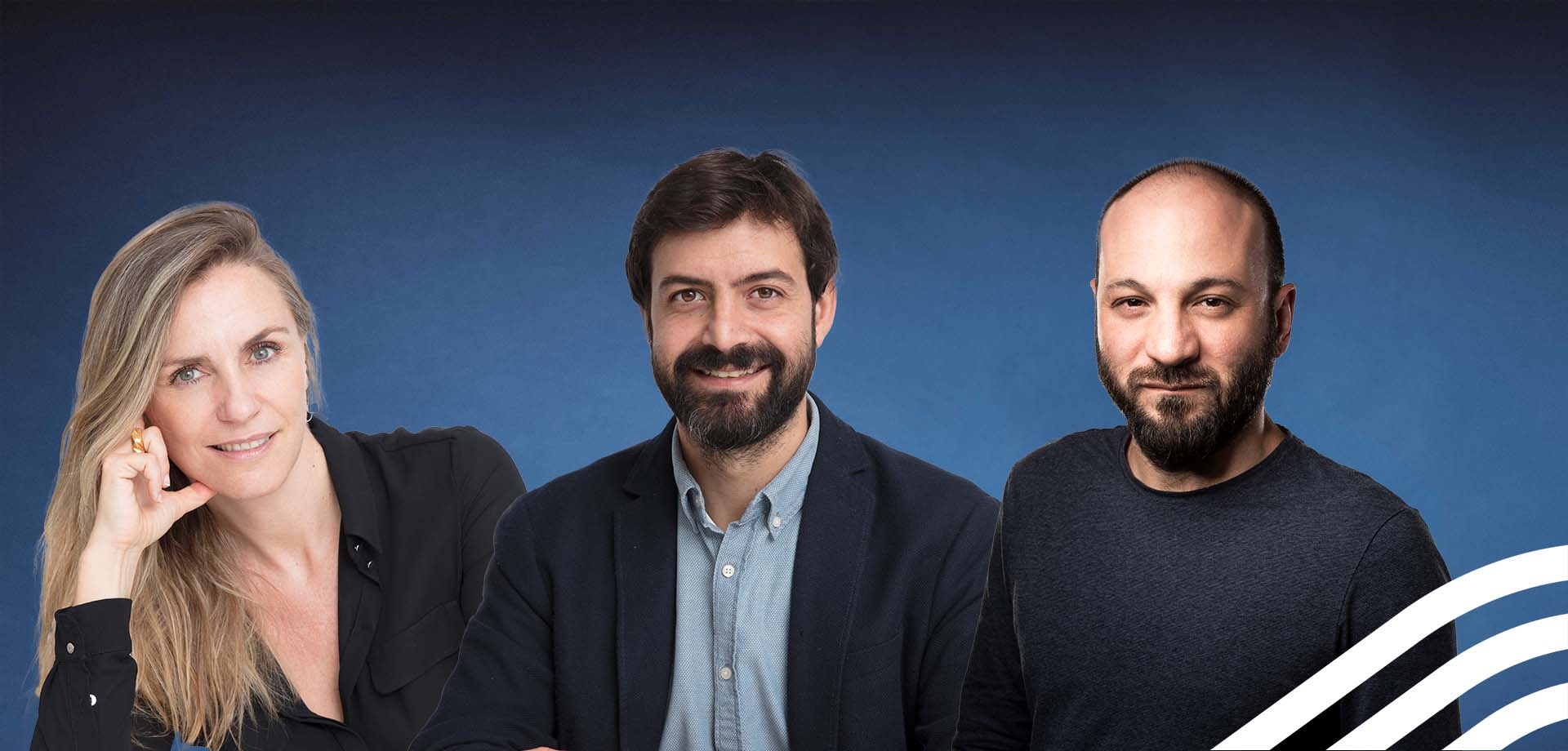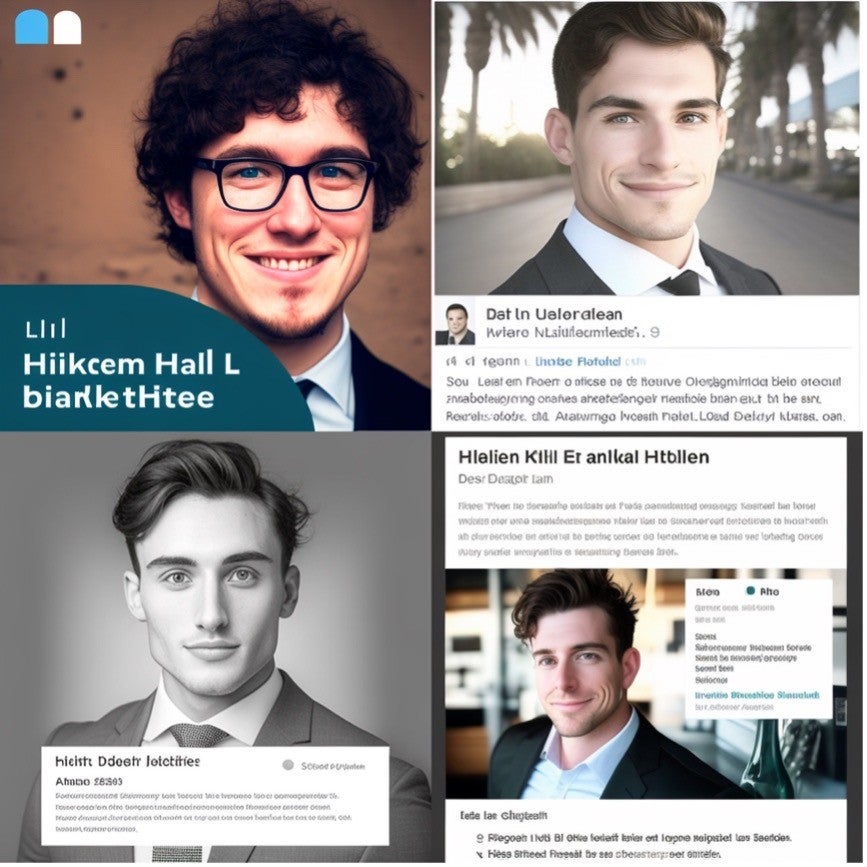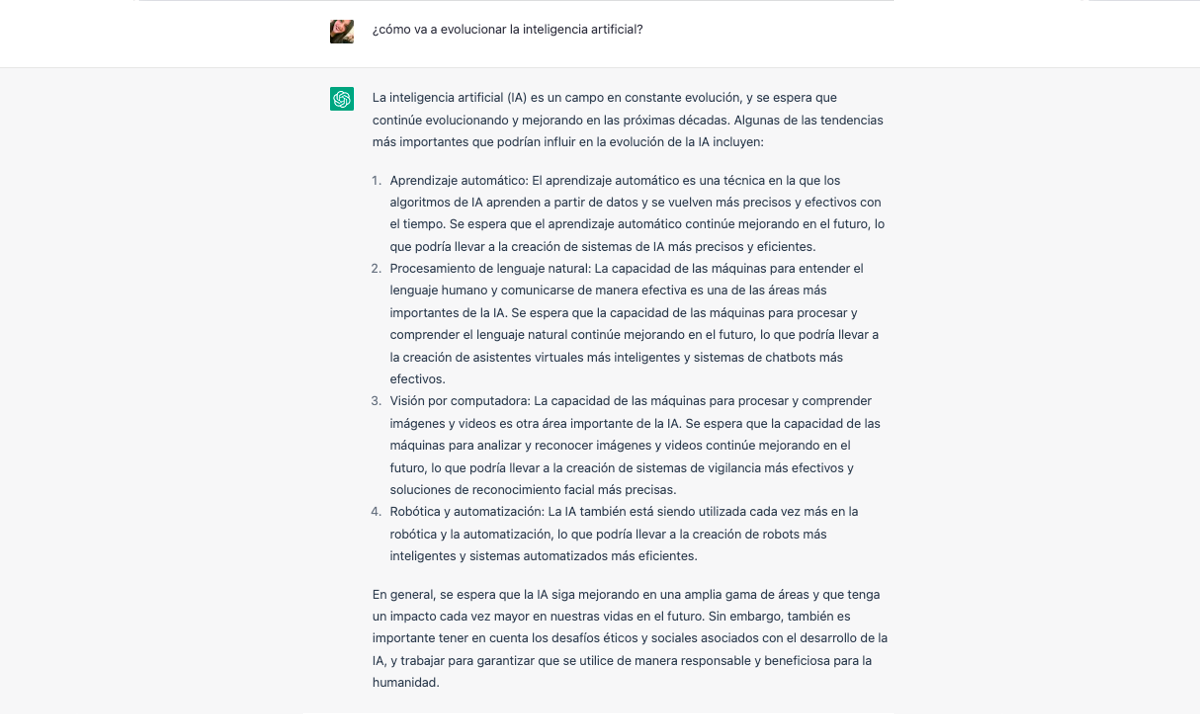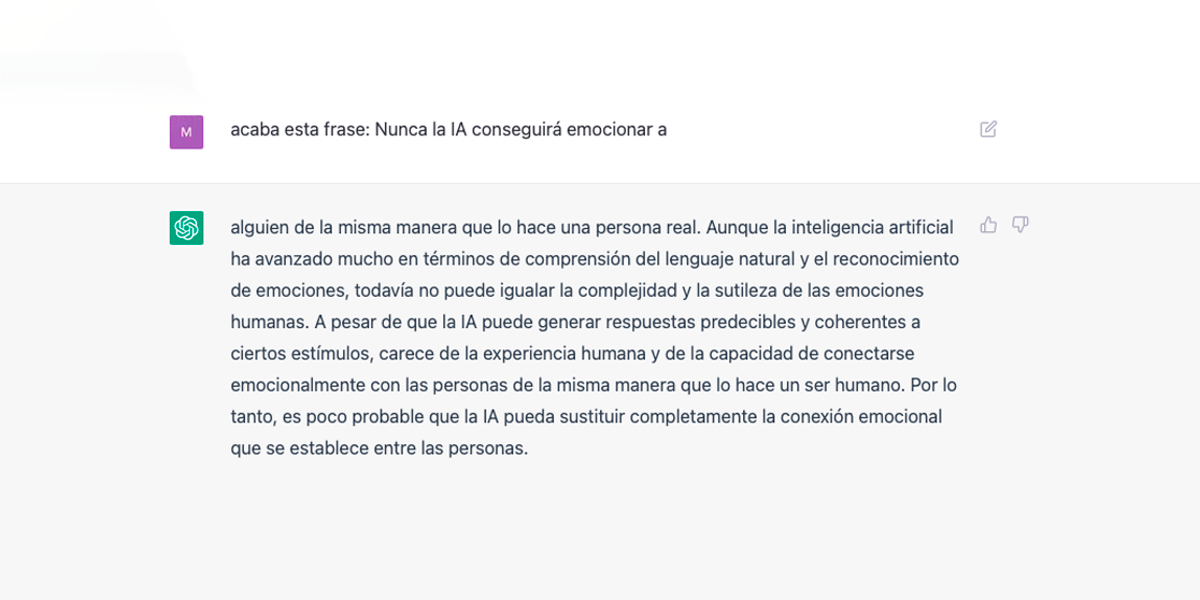AI will never be able to thrill...

AI will never be able to thrill...
18.05.2023
- Will AI be able to emote like a real person? An interview with our colleagues from Serviceplan Spain: Ainhoa de las Pozas, Antonio Oliver, Emilio Valverde and the AI itself.
Ainhoa de las Pozas:
I don't know if you remember Isaac Asimov's book I, Robot. It's several stories about the laws of robotics, which he wrote between the 40s and 50s of the last century and are chillingly current.
In fact, now that we are all with the fever of asking AI through ChatGPT, DALL-E 2, Midjourney or others, I don't know if we realize that we were already complaining about RRSS and how much we spend time on them, where at least you interact with humans and here we are talking to a machine or an artificial intelligence, not real as the name suggests.
Do you think that these tools will become conscious as it happens in I robot (not spoiler there are several stories) and has already told Blake Lemoine (Google engineer) who was accused of violating the company's confidentiality policy after stating that its artificial intelligence (AI) program could have feelings, that they will end up thinking like us and relieve us in our jobs? Or do you see more that they are one more tool that we have to take advantage of since, that, yes, we are at a point of no return and we can not deny its existence and its use?
Antonio Oliver:
There is no doubt that AI has one main goal, and that is to perform cognitive tasks better and faster than a human. It is a technology designed to make our work and life easier. It will help us to be more agile mainly in processes that require analyzing a high volume of data and in automated processes, where we will simplify and save time, but in no case will it become a substitute for humans.
In fact, there is an experiment conducted by a team at a Harvard Medical School hospital that shows that an algorithm can accurately detect breast cancer 92% of the time, while a human pathologist accurately detects it 96% of the time. When the pathologist works in conjunction with the algorithm, the results are accurate 99% of the time. This makes it clear how this technology adds to, not replaces, human functions.
Emilio Valverde:
We have seen people using AI to test its logical capabilities, asking it to solve mathematical problems, programmers asking it for code solutions and other requests that tried to test whether it had any moral bias. Indeed, we see how these algorithms are conditioned in their programming by these human biases (racial and moral) and that they continue to exist in reality.
Ainhoa de las Pozas:
In fact, Emilio, an article in The Guardian comments in depth on the cognitive bias of the AI itself being programmed by humans, but there are other elements to take into account such as where the information drinks from to decide what it writes, imagine, Fake news , manipulated sources or AIs embedded in oppressive political environments.
Emilio Valverde:
I totally agree. Without going any further, the other day we wanted to check that bias. Pablo Tesio, a creative in the department, was asked to find the perfect profile photo to be hired on LinkedIn. This was exactly the prompt: the perfect linkedin profile photo to be hired. The result is a bit scary: male, between 25 and 35 years old, Caucasian, light-eyed, good-looking (you can see the attached image). The AI does not specify his sexual orientation, ideology or religion; but seeing how it imagines his physical appearance, we can intuit them. The AI is a reflection of our society, it builds with the wicker it has at hand, what it finds, and what it finds includes false information, prejudices, sexism, racism and a lot of other isms. It is in our hands to correct this behavior, so as not to turn it into an engine that exacerbates these differences.

Antonio Oliver:
Moreover, speaking of the social networks themselves, they also base their algorithms on artificial intelligence. Take TikTok, for example. The real reason for the success of this social network is its AI-based algorithm.
Tiktok's highly customizable algorithm that shows us 'For You' content is much more addictive than that of other social networks. As soon as you sign up, it already seeks to classify you. In fact, one of its strong points is that it fully adapts to each user, so that everyone lives a different and personalized experience.
One aspect that we cannot forget to mention is that, depending on your personal situation, you have to be careful when using the platform because of the “Rabbit Holes” effect. This effect refers to the fact that a person cannot escape his own algorithm, i.e., he sinks deeper and deeper into a content ranking.
In fact, the Wall Street Journal created a bot programmed to take interest and invest time in consuming videos about mental health or depression on TikTok.
Ainhoa de las Pozas:
In the end, we have seen that there are several elements that affect the results offered and only human interpretation and fine tuning of what is being asked can offer us correct, inclusive and different answers. In fact, if we all start from the same brief and put it in the same place, the base from which we will start working will be the same, the coffee for all, and it can lead us to ideas that are too similar.
It is clear that IA has a long way to go, and that it will learn from itself to correct its mistakes and to improve and refine its resemblance to a “more human” mind. There are even issues that will have to be defined, such as data protection, which we could talk about at length: the need for new regulations, or transparency and accountability in the handling of data as a must for everyone.
But, focusing on our profession, how do you think we can benefit from the use of AI and how can it help us to create better communication solutions?
Emilio Valverde:
On virtually all fronts, AI wins against human marketing. AI is more effective, less costly and less time consuming. Sure, we could argue that humans can offer a level of personalization that robots can't yet, but, even so, AI is a great source of inspiration. Used well, it can help us find new strategic paths, totally unexpected approaches, or insights that would take a human much longer to find. Its ability to generate amazing images is also a fantastic tool to imagine photographs, illustrations, locations, characters, costumes...
Antonio Oliver:
In addition to helping us on the inspiration side, there are many other advantages that artificial intelligence offers us. You can use these tools to help clean up data sets, forecast future trends with predictive models or even look at competitors, social trends and customer feedback. This can help you create more effective marketing plans faster.
AI is also an excellent tool for data analysis, which is a significant part of designing an effective SEO strategy. From helping you spot trending topics, create content, optimize content for voice search to discovering content gaps. All of these strategies can be done faster and more effectively with AI-powered SEO software.
Ainhoa de las Pozas:
The truth is that there are infinite possibilities for its use as a tool to help us get the most out of our work, but no one knows how far it will evolve or how. We can guess, but what if we ask the AI itself how it sees itself in the future?

Ainhoa de las Pozas:
Do you notice that it does not use the word emotion at any time, because artificial intelligence can help us to write texts, but the feelings and emotions will be copies of things that real people have felt and not yours.
Emilio Valverde:
AI is just another tool, as was the Internet, Photoshop, or any of the many technologies that have appeared in recent years; but we are the ones who still have the power to achieve differentiation, the power to reach out, to build a message that goes beyond the skin. AI will never be able to find that phrase, that thought, that silence at the right moment, that insight with which we feel so identified, and that suddenly gives us a little pinch in the soul.
Let's do one last test to see if it is able to complete this sentence:

Interview with Ainhoa de las Pozas, CEO of Serviceplan Spain, Antonio Oliver, Digital Director of Serviceplan Spain, and Emilio Valverde, Executive Creative Director of Serviceplan Spain.









